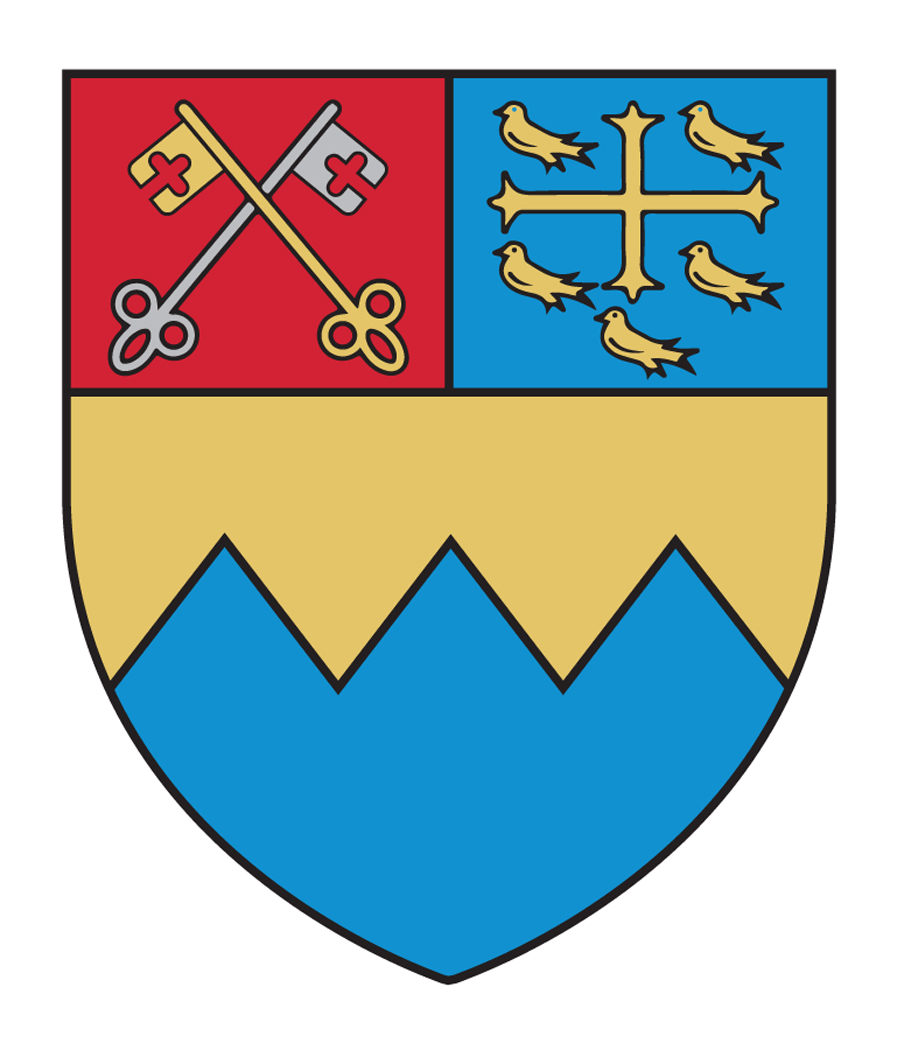
Welcome to Mass on Easter Day by Fr Gabriel
On behalf of Fr Abbot and the monastic community I welcome you all most gladly to this Mass of Easter Day and I wish to you, your families and your friends all the blessings of this holy Paschal season. Happy Easter indeed! I am Fr Gabriel and this morning’s preacher is Fr Chad.
I thank you all most gratefully for being here with us by audio and video streaming in these days, for joining in our celebration and for entering with joyful and loving hearts into the wonder of the Lord’s resurrection. This is the day which the Lord has made; we rejoice in it and are glad. Alleluia!
The risen Christ knows no boundaries of space or time and no locked doors keep him out. He is alive for evermore and is present by his Spirit and in the sacraments. He is present in your hearts and in your homes. You are the home where he truly wants to dwell, and he greets you coming along the way this Easter day.
Homily by Fr Chad
How are you coping? Last week’s Mori poll revealed that one in two are feeling unusually anxious and depressed, one in three are not sleeping well, and one in five are facing financial crisis. Within homes, one in five are arguing more, or drinking more. One in three are comfort eating. Generally the younger are finding the lockdown more difficult than the older.
Today was supposed to be a great celebration, a congregation of hundreds, alleluias and chocolates, the feast after the fast. And yet here we are in this seemingly endless lockdown lent. How can we rejoice in the resurrection? For some, the resurrection is an important value, a key principle: how we find our way back from this current crisis, how we resurrect our relationships, our aspirations, our way of life. For the first Christians, however, it was not a value – it was Him: ‘the Lord is risen’. That is true, however you feel. You are anxious about the future - Christ is risen. You are fed up with your parents - Christ is risen. You despair of your children - Christ is risen. You are afraid of death - Christ is risen.
But the resurrection cannot remain as simply a foundational proposition, something to which we assent at Mass, or in the Creed. The resurrection does not float safely above our actual lives. The risen Christ challenged Peter to feed his sheep, inspired the Emmaus disciples to reverse their journey. We can over-spiritualise our faith, misunderstanding Paul’s advice to ‘look for heavenly things’. We end up today thinking ‘it doesn’t matter where I am, I can still find the hidden things of heaven, shut my eyes, block out the world, discover a new dimension.’ But that’s not the Christian message – which was revealed through a human life – and the truth of that message was vindicated through the physical resurrection of the messenger. It was not that the disciples came to a new understanding, looking to the things of heaven, finding the silver lining, holding onto the memory of Jesus even though he had been killed. That’s not the Christian message – he is not here, he is risen.
The key, I think, is our belief ‘in the resurrection of the body.’ Thomas was right – unless I see his wounds... The body matters, your physical life matters. You know from those around you in your lockdown life : the one who offers a smile even though they’re anxious, the one who storms out of the room and slams the door, the one who quietly gets on with the chores. When this lockdown ends, when we have our coronavirus Easter, our bodies will be central, meeting and embracing those from whom we have had to keep distant. What we are enduring is not ‘the new normal’. Humans need touch, the touch of others in our relationships, the touch of God in His sacraments. The body is not just a temporary, embarrassing hindrance to our spirit. The first Christians declared the one whom they had seen, heard, touched.
Of course, ‘the body’ is central to our society – how to feed it, entertain it, improve it, protect it. There’s all sorts of advice online on how to nurse our bodies, how to live through this lockdown. There’s less advice about how to die – because death is the ultimate failure, to be warded off not prepared for. But even when we have defeated this virus, the millions spent, the lives disrupted, we are back to the ‘normal’ fact of 1500 people dying every day in this country. How does Easter help us make sense not just of our living but also of our dying? What perspective does the resurrection bring?
Last year I heard the confession from a recovering alcoholic who had lost his business, his family, and nearly his life and yet he had discovered a bedrock of truth to his life, and lived each day in gratitude to God, unafraid of death. He was the real deal, no pretence, just a hard-won integrity. What that Mori poll didn’t try to measure were the parents learning a new patience, the teenagers learning a new generosity, the elders learning a new wisdom, finding the spiritual perspective to live out their faith in these testing times, dying and rising with Christ in those small domestic sacrifices, knowing that physical life finds its true importance when it doesn’t have the final say. We are neither simply bodies nor simply spirits. We are both. The body is created to serve the spirit, the spirit is created to animate the body. That makes life a challenging pilgrimage but it makes death a glorious gateway.


